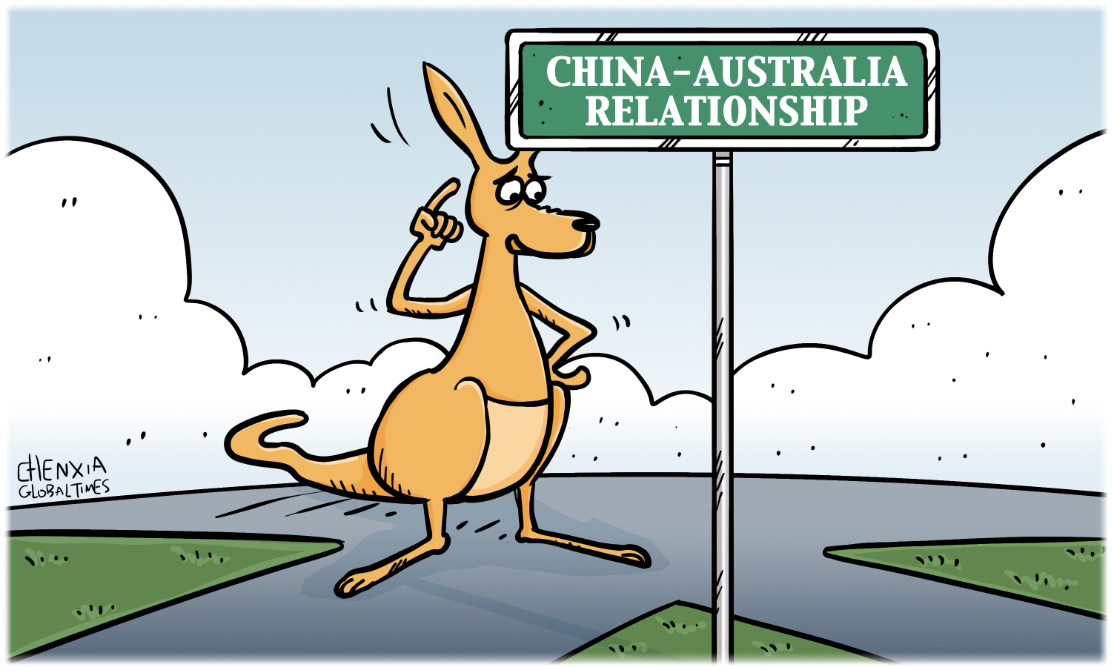
Australia
The unsurprising outcome of Australia's 2022 federal parliament election, held on Saturday (May 21), signifies not just the overwhelming success of the Australian Labor Party, but also the natural consequence of a series of fiascos of the governments under the Liberal-National Party Coalition.
Over its 9 years of reign, the coalition has wantonly squandered the confidence of the Australian people, losing its mandate from voters all over the country.
With a devastating inflation rate, people in Australia have been agonized with the soaring daily living costs, as well as housing prices, which have jumped more than 20 percent within the past year, as Bloomberg reported. Wages and salaries haven't significantly increased during the past five years, adding to the woes of the Australian consumers. Mismanagement of social welfare services, such as caring for the elderly, which used to be taken for granted in Australia, have caused widespread occurrences of dreadful abuses and scandals. Unprecedented ravaging bushfires and inundating rains have also wreaked havoc, demonstrating the inadequacy of emergency response competence and the poor quality of city and township infrastructure.
What's more, as of the day of the election, the Australian Health Ministry said that Australia registered 47,239 new coronavirus cases in the previous 24 hours and the caseload of the infections hit 6,910,455 in the country. Scientists and health experts have consistently warned against the Morrison administration's COVID policy of dropping all prevention cautions and restrictions.
Scott Morrison's infamy as a dishonest and guileful politician, not only within and outside his Liberal Party but also on the international arena, has smashed up his political credibility as a reliable leader for the country.
Anthony Albanese's victory is therefore a logical reflection of the widespread disgruntlement and resentment of the Australian people, who have long been yearning for a change
As this year's Labor Party election campaign slogan goes, Australia needs "a better future." But to have a better future, there needs to be more political wisdom which leads up to better policies. The new government under Albanese apparently faces all these challenges, and must deal with the political, diplomatic, economic, social and cultural conundrums left behind by the coalition administration for nearly a decade.
As a matter of fact, Albanese hasn't had much experience in diplomacy and international relations during his 26 years in federal politics. However, what awaits him immediately after the election is the meeting of heads of state of the Quadrilateral Dialogue - known as Quad - scheduled on Tuesday in Tokyo. Albanese and Penny Wong, his incoming foreign minister, will deliberate and formulate Australia's position and role in the ever complicated global geopolitical arena.
During the reign of the coalition governments, in particular under Morrison, Australia has been obsequiously tailing behind Washington's whims and fancies as part of its strategy to maintain and strengthen US global hegemony. As a sovereign country, Australia has a deficit of independence in its foreign policy and defence strategy. For example, Canberra tore up its $90 billion contract with France to turn to the US and the UK in order to build a fleet of nuclear-powered submarines for the purpose of serving the White House's goal to contain and deter China.
In fact, since the mid-2017, Australia has been recklessly damaging its relations with China, acting as Washington's foot soldier in the anti-China campaign. The Morrison administration had been doggedly antagonizing and provoking China, which in fact has been Australia's biggest trade partner. Bilateral relations between the two countries have now down spiraled to their lowest ebb since the establishment of the diplomatic relationship in 1972.
For most of the past 50 years, up until recent years, China and Australia have been assiduously and proactively working together to develop their bilateral relationship into a comprehensive strategic partnership. In 1972, bilateral trade between the two countries was as little as $100 million, but in 2021, it amounted to over $230 billion.
Will Albanese trail behind Morrison to continue Australia's role as the US' "deputy sheriff," or is he able to intrepidly step out of his predecessor's shadow and bring more maturity and independence into Australia's diplomatic and security policies?
Former Australian prime minister Paul Keating, also of the Labor Party, once said, "You change the government, you change the country." Australia needs changes, both internally and on the world stage.
Will Albanese bring sensible changes to Australia's outlook of China and to its China policy, and take concrete measures to steer bilateral relations to a new course? Only time will tell.
The author is president of the Chinese Association of Australian Studies and director of the Australian Studies Centre at East China Normal University. opinion@globaltimes.com.cn




